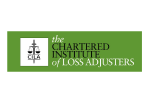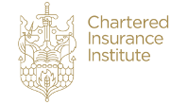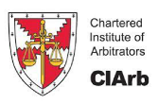Experiencing a fire in your house can be a traumatic and overwhelming situation. Although we have assessed literally thousands of fire insurance claims, we always treat each and every new case on its own merits. No two claims are the same and the effects on policyholders, be they businesses or families, can be profound.
We specialise in taking the problem – the making of an insurance claim – and resolving it to produce the best possible outcome having regard to policy cover and all of the other myriad circumstances that are peculiar to each loss.
In our experience, thoughts of insurance are often somewhat secondary, certainly in the immediate aftermath of a fire. Instead, claimants tend to have more pressing matters to attend to, such as:
1. Ensure Personal Safety – Get Out, Stay Out:
– Nothing is more important than the security and wellbeing of your loved-ones or colleagues. Prioritise your safety and the safety of others. Leave the house/premises if necessary and stay at a safe distance until authorities declare it safe to re-enter.
– Be cautious of structural damage, weakened floors, or other hazards that may pose a risk.
– If you have any concerns about the stability of the structure or the presence of utilities, such as gas leaks or electrical issues, contact the appropriate authorities or utility companies.
2. Contact Emergency Services:
– Call the emergency services 112 or 999 (such as fire department or emergency hotline) to report the fire and seek immediate assistance.
– Inform them of the situation and provide accurate details about the fire, the extent of damage, and whether anyone is injured or missing. Have your EirCode to hand.
3. Seek Medical Attention if Necessary:
– If anyone is injured during the fire, seek medical attention promptly. Contact emergency medical services or take them to the nearest medical facility for assessment and treatment.
4. Communicate with Family Members:
– If your family members were present during the fire, ensure that everyone is accounted for and in a safe location.
– Establish a designated meeting point outside the house to gather and keep track of each other.
5. Notify your Broker or OMC Claims:
– Contact your Trusted Advisors as soon as possible to report the fire and initiate the claims process. Provide them with accurate information regarding the incident.
6. Document the Damage:
– Only if it is safe to do so, try to take photos or videos of the fire damage to your property, including both the structure and your belongings. This documentation can be valuable for insurance claims and assessing the extent of the loss.
7. Secure the Property:
– If it is safe to do so, take steps to secure your property. Close and lock doors and windows, or cover any openings to prevent further damage or unauthorized access.
– If necessary, contact local authorities to provide additional security or assistance.
8. Inform Relevant Parties:
– If relevant, notify your landlord or property manager about the fire incident.
– Contact any utility companies to inform them of the situation and inquire about necessary actions (such as suspending services or checking for damages).
9. Seek Temporary Accommodation:
– If your house is uninhabitable due to fire damage, make arrangements for temporary accommodation for yourself and your family. Reach out to family, friends, or local authorities for support and guidance.
– Alternative domestic accommodation is typically covered by most insurance policies, although this will need to be checked by your trusted advisor and confirmed by the Insurer. I
10. Mitigate Further Damage:
– While you should not attempt any major cleanup or repairs yourself, you can take steps to prevent further damage if it can be done safely. For example, covering exposed areas with tarpaulins or boarding up broken windows.
11. Support and Counseling:
– Experiencing a house fire can be emotionally challenging. Seek support from friends, family, or professionals who can provide emotional support or counseling during this difficult time.
Karol Gregan has deep sectoral knowledge and a thorough understanding of the domestic and commercial claims markets. She had handled claims for every major insurer during her fourteen-year loss adjusting career, before joining OMC Claims in 2014. Karol represents her clients’ interests throughout the household, agricultural and commercial spheres, delivering consistently superb results.
Karol was centrally involved in negotiating settlements on behalf of policyholders that had business interruption claims during the recent COVID19 pandemic. Karol holds the Certified Diploma in Loss Adjusting from the Insurance Institute of Ireland (C.Dip. LA).







